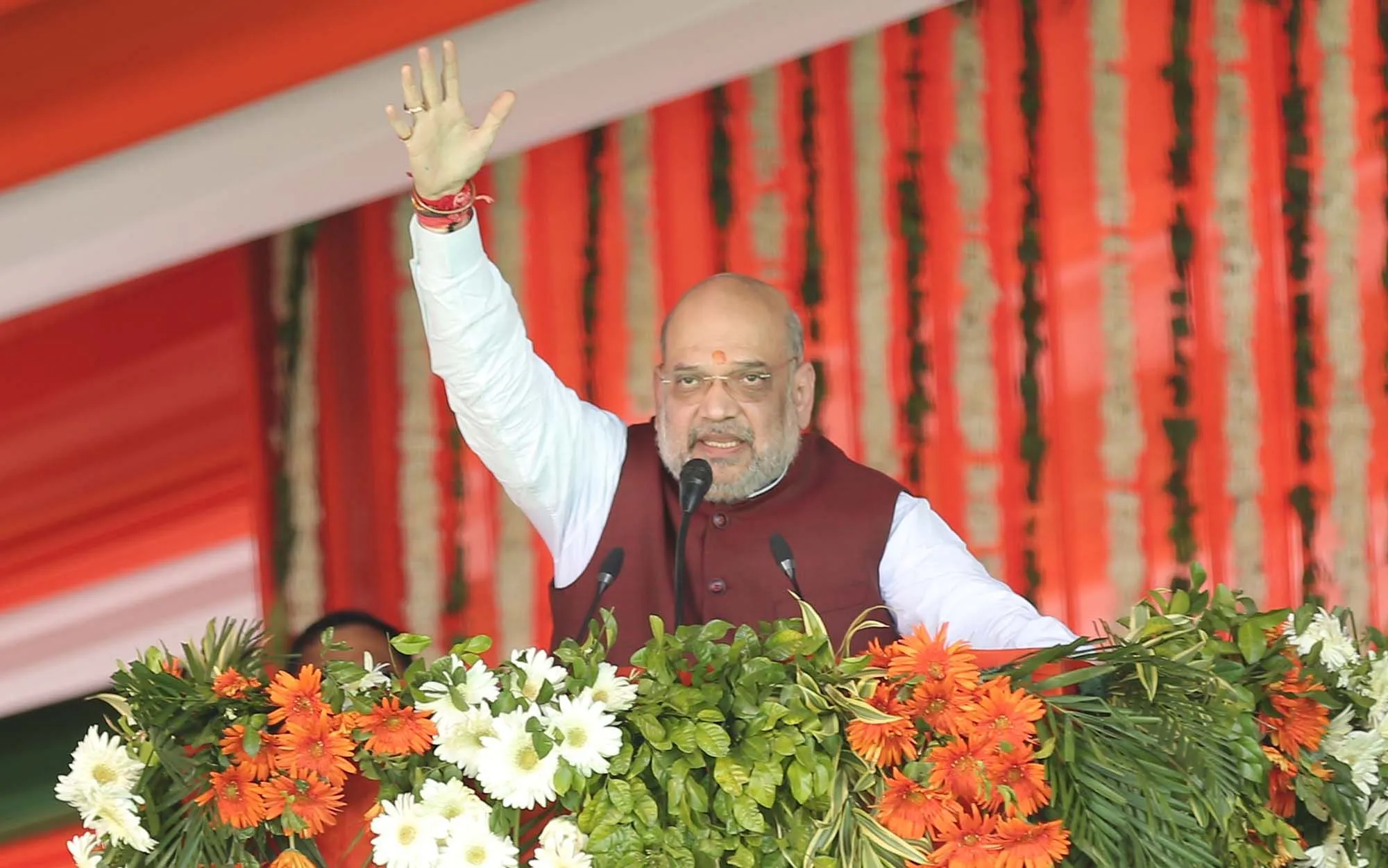One is sure to notice a modicum of calm in the Kashmir valley and throughout the Jammu and Kashmir UT for some time now. The longstanding tradition until recent years in Kashmir called for hartals or bandhs whenever the Prime Minister or the Home Minister visited J&K, organized by the separatists and supported by Pakistan.
However, there is no hartal or bandh to be seen today since Home Minister Amit Shah arrived in J&K for his three-day visit. More than anything, this in itself attests to the fact that there has been considerable improvement in Kashmir over the last three years since Article 370 was abrogated.
Not just that, in fact, in the last three years, commerce has also been booming in every sector—from tourism to traditional arts and crafts to every other sector—and people have been able to get over the losses brought on by prior acts of violence.
Changing times
If we talk about things looking bright in the “Heaven on Earth,” since August 5 of 2019, not a single innocent person has been killed by security personnel compared to the riots that took place in 2008, 2010, and 2016, which resulted in thousands of casualties because of the inadequacy of the traditional dynast political parties.
In comparison to all those times when people were killed and stone pelted on the roads, one may agree that there has been subsequent peace at the crossroads of Jammu and Kashmir.
If one looks back at the stretch of time when Dr. Farooq Abdullah, Omar Abdullah, and Mehbooba Mufti were in power, a lot transpired around that period since they woefully failed to address and strive toward the redressal of public issues during their time.
The governments at the central level and in the UT have adopted several unprecedented initiatives to help ensure greater control over security and the law-and-order situation. Separatist groups, underground activists, and terrorist sympathizers were all imprisoned.
The typical hartals and bandhs are likewise put to a complete standstill, and stone-pelting seems to be almost over. A relatively tranquil and pleasant environment is felt by the populace, and they also cherish it. LG Manoj Sinha is also working around the clock to ensure transparency in the government and administration with many initiatives, one of them prominently known as – LG Mulaqat, a 360-degree feedback structure to address the issues of the populace from every district.
In addition, the security establishment has dismantled several terror modules. To combat terrorism and the underlying ideologies of separatism and terrorism in Jammu and Kashmir, the UT administration took several ground-breaking measures, like a widespread purge of the terror regime operating in Kashmir. Security forces have effectively neutralized or deactivated their active operatives and sleeper cells. The killing of 152 terrorists in the UT this year and 171 in 2021, particularly in the Kashmir valley, is a hard ground truth that the separatist and terrorist enclave is yet to reconcile with.
Those who supported the causes of terrorists and separatists backed by Pakistan while working for the government have been identified with sufficient proof and fired in accordance with the law. The termination of about 35 of these high-risk individuals from official employment includes the grandson of Pakistani hardliner Syed Ali Shah Geelani and the son of Hizbul Mujahideen Chief Syed Sallaudin, both given government jobs in dubious ways.
Jammu and Kashmir had a pervasive corruption problem because of Article 370, which granted the state’s successive governments the authority to adopt their own ineffective and convenience-driven anti-graft laws. Despite an allocation of Rs 27700 crores for development, there was no anti-corruption bureau in J&K. After the scrapping of Article 370 and the establishment of ACB, began a full-scale campaign against corruption. Also, since the Prevention of Corruption Act has been put into effect in Jammu and Kashmir, there are now deadlines for handling corruption cases, and both the bribe-taker and the bribe-giver are now considered culpable.
Challenges ahead
Even though things are looking good and the future seems bright, the need to regularize the political process and political mobilization is the key barrier that still needs to be addressed, and because of J&K’s established leadership style, it is something that has not been fostered before. Instead, the traditional leaders profited by posing as a rickety and shifty link between separatists and the Indian state.
In addition, some politicians continue to maintain their diplomatic stance and manage two fronts. The former politicians, with subversive media practitioners who work for the top national dailies, keep floating the narrative of their relevance in pushing back Pakistani influence and continue to pressurize New Delhi. In doing so, they try to instill terror in New Delhi by employing their media allies to produce opinion pieces and create the impression that nothing in Kashmir is as it seems and that things will only get worse in their absence. People must understand that because they fear losing their authority or position, they get involved in such dodgy propaganda. The concern here is the need to deter subversion. Delhi must confront this problem head-on by refusing to be swayed by anyone whose interests are personal or who serves Pakistan’s agenda.
Another aspect to keep a lookout for is corruption in Jammu and Kashmir. The rationale being any form of illicit financial activity or black money in Kashmir might be utilized to fuel terrorism. It is vital to keep an eye on some economic sectors that the conventional political leadership of J&K has historically supported and that are striving to advance the interests of Pakistani governments in J&K while stifling the growth of other businesses in Kashmir.
DISCLAIMER: The views and opinions expressed in this article are the personal opinions of the author.
The facts, analysis, assumptions and perspective appearing in the article do not reflect the views of GK.






